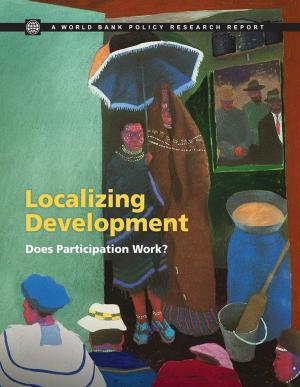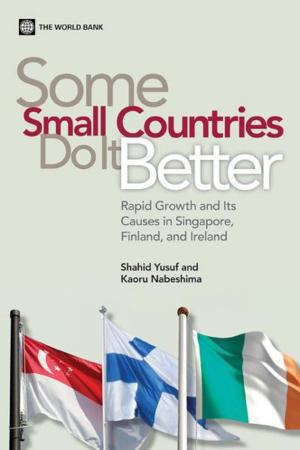Enabling the Business of Agriculture 2016
Comparing Regulatory Good Practices
Business & Finance, Business Reference, Government & Business, Economics, Development & Growth, Industries & Professions, Industries| Author: | World Bank Group | ISBN: | 9781464807817 |
| Publisher: | World Bank Publications | Publication: | March 18, 2016 |
| Imprint: | World Bank Publications | Language: | English |
| Author: | World Bank Group |
| ISBN: | 9781464807817 |
| Publisher: | World Bank Publications |
| Publication: | March 18, 2016 |
| Imprint: | World Bank Publications |
| Language: | English |
Enabling the Business of Agriculture 2016 provides a tool for policy makers to identify and analyze legal barriers for the business of agriculture and to quantify transaction costs of dealing with government regulations. Building on an earlier progress report published in November 2014, this volume presents the main results for 40 countries, for the first time using indicator scores to showcase good practices among countries in different stages of agricultural development. It also presents interesting results on the relationship between efficiency and quality of regulations, discriminatory practices in the laws, and whether regulatory information is accessible. Regional, income-group, and country-specific trends and data observations are presented on six topics: seed, fertilizer, machinery, finance, markets, and transport. The report also discusses the continued development of several topics that will be added in future reports: information and communication technology, land, water, livestock, gender, and environmental sustainability.
Enabling the Business of Agriculture 2016 provides a tool for policy makers to identify and analyze legal barriers for the business of agriculture and to quantify transaction costs of dealing with government regulations. Building on an earlier progress report published in November 2014, this volume presents the main results for 40 countries, for the first time using indicator scores to showcase good practices among countries in different stages of agricultural development. It also presents interesting results on the relationship between efficiency and quality of regulations, discriminatory practices in the laws, and whether regulatory information is accessible. Regional, income-group, and country-specific trends and data observations are presented on six topics: seed, fertilizer, machinery, finance, markets, and transport. The report also discusses the continued development of several topics that will be added in future reports: information and communication technology, land, water, livestock, gender, and environmental sustainability.















